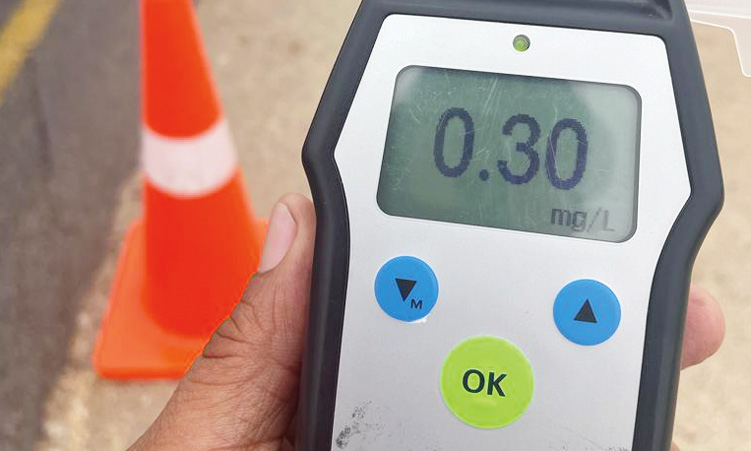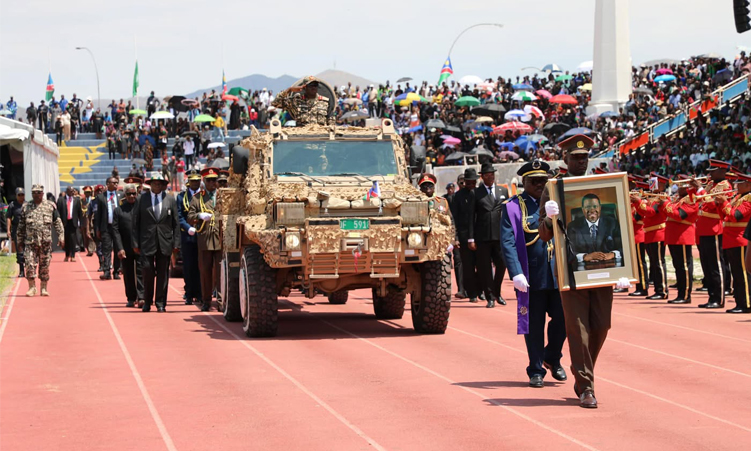With the festive season already underway and many Namibians having embarked on their various journeys to enjoy a well deserved rest with family and friends, Top Revs spoke to various role-players about road safety and initiatives to ensure both visitors to the country and residents have a smooth road experience.
Aubrey Oosthuizen from Code Red and the national coordinator of the West Coast Safety Initiative (WCSI), through the information campaign to sensitise motorists in the Erongo region, says road users should at all times have emergency numbers at hand or in their vehicles.
This is why the initiative distributes WCSI emergency packs with all the relevant emergency telephone numbers at various roadblocks.
This campaign kicked off in 2004 and ever since, Oosthuizen and his team have distributed 577 000 emergency information packs and travelled more than 303 000 kilometers to promote safer roads.
Driver’s fatigue remains one of the main causes of accidents, and Oosthuizen (who is also an advanced life support medic) says drivers must take regular breaks after every 200 kilometre or two hours’ drive.
“We advise motorists to take at least between seven to eight hours of good night’s rest before embarking on a long distance trip. Do not overindulge in food before or during the journey, but rather eat light healthy snacks. Refrain from loud music while driving since it might distract your attention from other vehicles on the road,” he says.
On the topic of emergency vehicles, Oosthuizen advises motorists to give any emergency vehicles right of way to pass as safely as possible to ensure enough space for vehicles en route to the scene of an emergency.
Meanwhile, Roads Authority executive officer of transportation Sydney Boois says motorists should refrain from consuming any alcohol.
This comes after traffic officers over the weekend encountered a truck operator outside Henties Bay with an alcohol volume of 0,30 mg/1000ml.
Although the limit is 0,37, it still remains an offence since the driver was operating on a public road, says Boois.
Boois also cautioned motorists about the overloading of vehicles which not only damages the road surface but is also a transgression of the law.
“Law enforcement is not only there to punish operators, but to protect both operators and our road infrastructure,” Boois says.
One of the biggest headaches on the road are worn out tyres, followed by the incorrect tyre pressure for various road conditions. Other contributing factors that influence the fitness of vehicles negatively are the head and tail lights, wiper blades, windscreens and objects that hamper the visibility of the registration plate, he adds.
Boois emphasises that registration plates must be visible at all times.
Worn shocks, brakes and other parts of the suspension are often neglected by the owner and regular checks on the entire braking system is recommended, says Boois.
As part of Puma Energy’s contribution to alleviate road fatigue, the company embarked on a campaign to encourage visitors travelling on Namibia’s roads to reach their destinations safely.
“It is of utmost importance that each corporate entity plays its role in advocating and contributing to road safety,” says Puma Energy Namibia general manager Adell Samuelson in a press release.
Puma Energy Namibia, in line with its slogan, ‘Energising Communities’, will offer tourists refilling at Puma Energy Namibia’s 57 filling stations countrywide a much-needed free coffee or ice cold bottled mineral water.
Tourists can make use of this convenient offer between 1 December 2023 until the end of January 2024. When arriving at a Puma Energy Namibia filling station, they will notice on the forecourt and/or in the convenience shop, a poster showing a QR code which they should scan with their smartphones to redeem their free beverage together with proof of their passports.
Stay informed with The Namibian – your source for credible journalism. Get in-depth reporting and opinions for
only N$85 a month. Invest in journalism, invest in democracy –
Subscribe Now!







